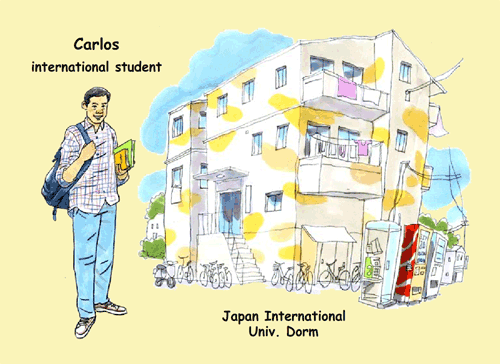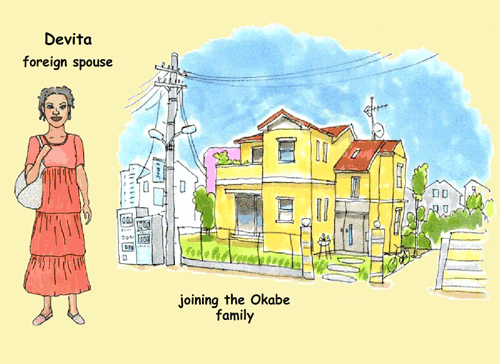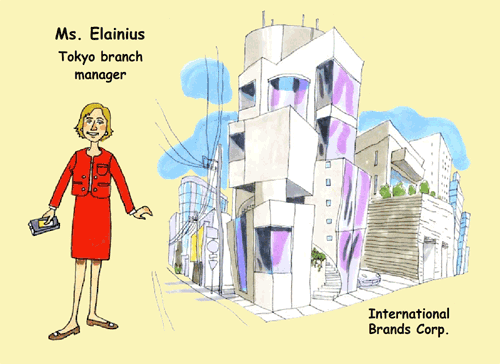The gaps between Peter and the host Okaasan’s view of the homestay set up the major themes of this website. Of course, if you’re not on a homestay you won’t encounter the same situation as Peter and Okaasan detailed above. But let’s look at the initial viewpoints of the other newcomers, along with their Japanese counterparts:
(1) When Carlos becomes an exchange student at Japan International University, he decides to live in the dorm.

(2) Abby arrives at the junior high school where she is based as an assistant English teacher (ALT). It is still summer, school hasn't yet started, but she meets some of her fellow teachers:

(3) Matt has just started his new job at Shimizu Auto Corp, and has met with his group head for the first time.

(4) Professor Witherspoon has just arrived as a visiting professor at the University of Tokyo, and is settling into his new office.

(5) Devita arrives with her Japanese husband to live with his parents in the family household. Devita speaks Japanese well and has been in Japan before.

(6) Ms. Elainius has just arrived to manage the Tokyo branch of her U.S. company.

It looks like all the newcomer situations have something in common with the situation depicted in Peter’s homestay. In fact, we suggest that no matter what your living or working situation is in Japan, you will encounter in some way the kinds of gaps that occurred in Peter’s homestay narrative and the other newcomer narratives above. We don’t mean to imply these kinds of gaps are found only in Japan. No matter what country you go to live in, you can’t avoid encountering gaps such as these.
![]() Many learners have told us they thought Part 1 was far too simple. These questions might seem easy, but when you’re in the situation, they are anything but. What’s easy is to overlook these gaps in the first place. But the consequences are real—and can mean the end of your relationships (as in the Peter case). You should pay attention to these issues as if the success of your stay in Japan depends on them. It does!
Many learners have told us they thought Part 1 was far too simple. These questions might seem easy, but when you’re in the situation, they are anything but. What’s easy is to overlook these gaps in the first place. But the consequences are real—and can mean the end of your relationships (as in the Peter case). You should pay attention to these issues as if the success of your stay in Japan depends on them. It does!















